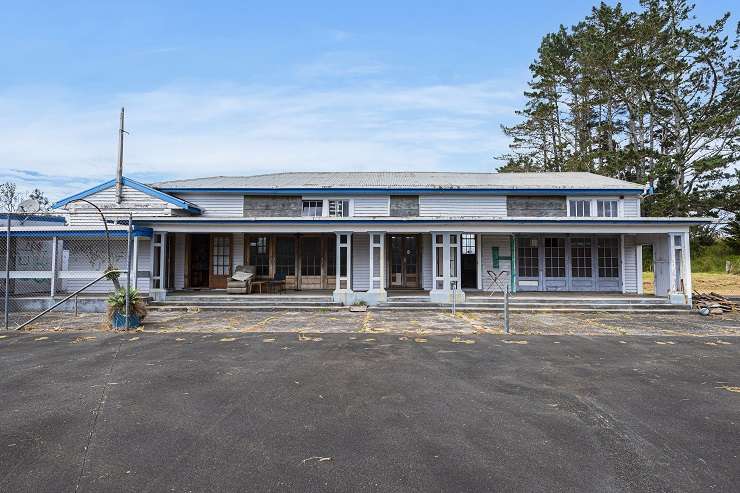A hapū occupying an abandoned school in Northland have been told the Government won’t talk to them until they vacate the premises.
The old Towai School in Hikurangi was withdrawn from sale last week because it was proving too difficult to sell.
Since learning in March that the property was back on the market, Ngāti Hau has asked Te Arawhiti – the Office for Māori Crown Relations – to purchase the property, but had been declined. Hapū moved into the site at the end of March and vowed to stay there until there was a resolution.
Treaty of Waitangi Negotiations Minister Paul Goldsmith told OneRoof it was an illegal occupation and he would only consider meeting with the hapū once they left the property.
Start your property search
Te Arawhiti chief executive Lil Anderson said Goldsmith advised Ngāti Hau in April that occupying private property was not an acceptable means of resolving historical Treaty of Waitangi claims.
Anderson said in general, that the Crown did not purchase private property for use in Treaty settlements unless there was a willing seller.
Discover more:
- Mortgagee sale of multi-million-dollar dream home owner couldn’t finish
- ‘Expect to see more of them’: Lifestyle block with $2m RV to be sold at mortgagee auction
- House sales on the verge of collapse due to finance delays, claim brokers
Commenting in April, Anderson told the Northern Advocate that Te Arawhiti advised the hapū of its request to the Crown to purchase the property and return to mana whenua that it did not have scope to consider purchasing the property that financial year.
The former Tōwai School site has been in private ownership for 11 years since the owner spotted it for sale while travelling between Northland and Auckland, and purchased it for $125,000 from the then Housing New Zealand on a whim.
The owner put it on the market in March this year because he did not have the capacity to do anything with it, but his plans to sell it by way of deadline sale were squashed when hapū moved onto the land.
Just two weeks ago the owner died while still waiting for a resolution and his family have decided to pull it from the market.
Ray White listing agent Alex Smits told OneRoof this week that the family had got “hoha”.
“They are very disappointed they didn’t sell this freehold title before he passed away. It’s quite sad really – they got held to ransom,” he said.

Treaty of Waitangi Negotiations Minister Paul Goldsmith said he would only consider meeting with Ngāti Hau once the occupation ended. Photo / Mark Mitchell
“It got too hard. No one wanted to help them out and get the occupiers off the land. It had just become a messy mess.”
Northland-based ACT MP Mark Cameron has also waded into the debate and claimed the occupation of the Tōwai School site eroded property rights. “We’ve now got groups who think they can squat on land, destroying its saleability, with complete disregard for whose name is on the title. If they want it they should bloody buy it,“ he said in a statement.
Cameron said illegal squatters were preventing people from doing something positive with it and the land now sat derelict and unsaleable.
He warned that the Crown buying the land now would only reward illegal squatters and encourage further occupations.
A Te Pāti Māori spokesperson said the implications of land loss have been detrimental to its people and its party policy endorsed the return of whenua.
Property lawyer Joanna Pidgeon, of Pidgeon Judd, told OneRoof that the occupation of private land in New Zealand was “highly unusual”.
She said the private owner could sell a property without vacant possession and leave it up to the purchaser to deal with the occupiers, which was the case with mortgagee sales.

Towai School, on Ford Road, was withdrawn from sale last week. Photo / Supplied
However, there was generally a limited pool of buyers willing to buy properties in these circumstances, and the sale price would have to be heavily discounted to factor in the time and cost involved with the new owners removing the occupiers.
Owners could apply for a court order to get them removed and seek costs, but this was often a long and costly process that could involve bailiffs, police and even arrests.
However, she said the occupation of private land was “highly unusual”.
In 2020, the Crown paid Fletcher $29.9m for a 23-hectare land block on Ōruarangi Road in South Auckland known as Ihumātao. The site had been occupied for four years to stop a planned housing development on the sacred site.
- Click here to find properties for sale
















































































